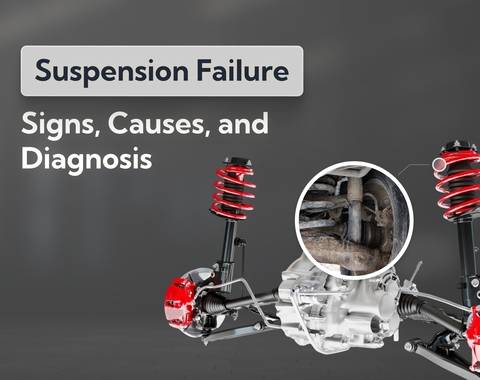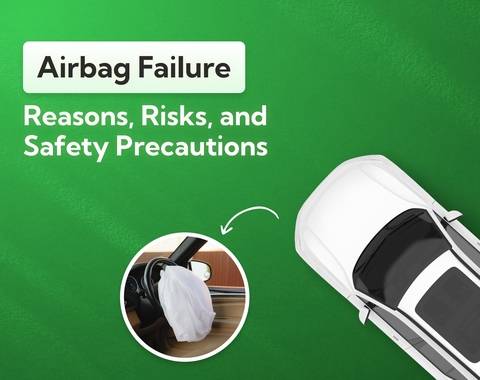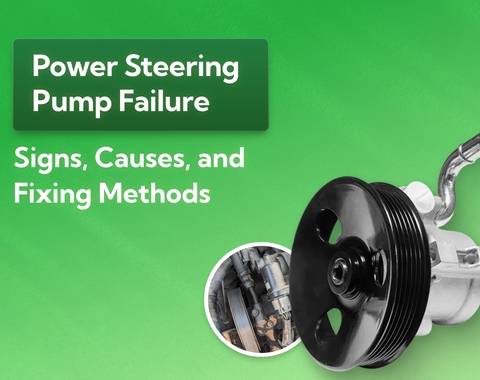How Much Can You Negotiate on a Used Car?
Your ability to negotiate significantly impacts the final price you pay for a used car. If you can successfully negotiate, you can save hundreds or even thousands of dollars on your purchase. This article is here to help you navigate the process and secure the best deal.
Last updated: 23rd October, 2025

Anthony Sharkey is COO at New Reg Limited (Car.co.uk, Trader.co.uk, Garage.co.uk), driving innovation in vehicle recycling, logistics, and customer experience.

Listen to this story
Your ability to negotiate significantly impacts the final price you pay for a used car. If you can successfully negotiate, you can save hundreds or even thousands of dollars on your purchase. This article is here to help you navigate the process and secure the best deal.
When you're buying a used car (or any car for that matter), going with the sticker price will never strike you the best deal possible. It's in the dealer's best interest to sell the car at the highest possible price, but there's almost always some wiggle room.
So just how much can you negotiate on a used car?
The answer is, it depends on your wording, preparation, knowledge, and the overall condition and in-demandness of the vehicle.
What's in this article
- 1. Is there a standard discount percentage for used cars?
- 2. Factors affecting your negotiating power
- 3. What to check before negotiating the price of a used car
- 4. How do I determine the fair market value of a used car?
- 5. Can I negotiate the price of a used car at a dealership?
- 6. Can I negotiate on a used car sold by a private seller?
- 7. How does car condition affect negotiation potential?
- 8. Does age affect how much I can negotiate off a vehicle's sale price?
- 9. Is it possible to negotiate a used car's sale price based on mileage?
- 10. How do seasonal trends affect used car prices?
- 11. Best negotiation tactics for buying a used car
- 12. Should I mention competitor prices during the negotiation?
- 13. Final thoughts
Is there a standard discount percentage for used cars?
There isn't a fixed "standard" discount for used cars. It’s common to start negotiations at about 10-15% below the asking price. This gives you room to maneuver and allows the dealer to counteroffer.
Depending on the factors mentioned below, you might realistically expect a final discount of around 5-10% from the initial asking price. In some cases, particularly where the vehicle has higher mileage or is not in perfect condition, you might be able to negotiate up to 15-20% off.
Factors affecting your negotiating power
Since there is no set standard discount percentage for used cars, your negotiation power depends on various factors that can tilt the scales in your favour. While the cost of second-hand cars has risen significantly, sellers are still willing to find the right deal.
Let's dive in.
1. Market conditions
High demand with low supply limits your negotiating power, whereas a surplus gives you more leverage to ask for discounts. You can research the market value of the car you're interested in using our free car valuation tool to get an idea of its worth.
During economic downturns or slower sales periods, dealerships will usually be more willing to negotiate to meet sales targets and clear inventory.
2. Vehicle condition
There's a lot that goes into how much a car is worth. The most important factors when buying on the second-hand market are:
- Vehicle age
- Mileage
- Service history
- Visible and invisible defects
High-mileage cars or those showing significant wear and tear can often be negotiated down more. Visible issues like dents, scratches, or interior wear, as well as problems with the mechanics or electrical systems, provide leverage to ask for a lower price.
A well-documented service history will also add value to a car, which makes missing records and irregular servicing points for negotiation.
3. Dealer policies
Some dealerships operate with a no-haggle policy, where prices are set, and negotiation is not possible. This is why it's so important to get multiple offers and shop around before committing to a purchase — there's a chance the 'no-haggle' deal is the best, while other dealers may markup the price expecting buyers to negotiate.
Dealers are sometimes more flexible towards the end of the month, quarter, or year when they are trying to meet sales targets. Timing your purchase around periods when salespeople are more inclined to close a deal fast gives you better negotiating opportunities.
4. Preparedness and research
Market Value Knowledge: Knowing the market value of the car based on tools like Auto Trader, Kelley Blue Book, or Edmunds provides a solid foundation for negotiation. This knowledge prevents overpaying and helps justify your offer (NerdWallet: Finance smarter).
Pre-Approved Financing: Arriving with pre-approved financing can strengthen your position. It shows the dealer you are a serious buyer and helps you focus on negotiating the car price rather than the financing terms (NerdWallet: Finance smarter).
5. Trade-ins, incentives, and add-ons
If you have a vehicle to trade in, you can negotiate its value as part of the deal. Ensure you know its market value and condition in addition to all the abovementioned info to get a fair trade-in price.
Getting a better deal on your used car isn't strictly related to the sticker price, either. Even if they can't lower the price any more, dealerships may be more flexible with throwing in extras like warranties, free servicing, or other add-ons.
Shopping around and getting quotes from multiple dealers can provide leverage. Mentioning a better offer from another dealer can sometimes prompt a dealership to match or beat that offer.
What the experts say

Steven Jackson OBE
6. Competitor prices
While it might not always matter, dealers who care about their reputation and maintaining a competitive edge sometimes match or beat competitor prices to earn your business. Some used car dealers even have policies of price matching or beating competitors, which is worth knowing as you shop around.
What to check before negotiating the price of a used car
To make an informed offer on the car in question, you first need to thoroughly examine its current condition and history. This requires a combination of online checks and verifications and hands-on testing.
- Check the car's MOT history. Using our free MOT history checker, look for recurring issues or advisories that have been noted in previous tests. This is an easy first step that takes just a few clicks.
- Get an HPI Check. This is a comprehensive vehicle history report that checks for any outstanding finance, previous accidents, mileage discrepancies, or if the car has been reported stolen. You can start the process on HPI's website, and it's the most vital element of the research process.
- Examine the exterior. Inspect the car’s bodywork for dents, scratches, rust, and any signs of previous repairs. Check the condition of the tyres, ensuring they have adequate tread depth and are free from damage.
- Look around the interior. Inspect the condition of the seats, dashboard, and other interior features. Look for any wear and tear, stains, or damage that might affect the car’s value.
Verify service history. Regular maintenance records indicate that the car has been well cared for, which can affect its reliability and value. - Ensure the seller can provide the V5C logbook. Double-check that the details match the car, including the Vehicle Identification Number (VIN) and engine number.
- Go for a test drive. During the test drive, use the car’s handling, acceleration, and braking. Ensure there are no unusual noises and that all controls work as expected. Also assess the comfort of the seats and the driving position. Test all electronic components, including the air conditioning and infotainment system, for operability.
If you're buying a used car on the private market, it's also a good idea to have a mechanic inspect the car to check the engine, brakes, suspension, and other mechanical components.
How do I determine the fair market value of a used car?
To determine the fair market value of a used car in the UK, we recommend using a combination of online tools and research.
For an accurate representation of a car's true value, take the following steps:
- Use car valuation tool.
- Look at comparable listings on websites like Auto Trader, Motors.co.uk, and eBay Motors.
- Evaluate the vehicle's service records, accident history, and current condition (inside and out).
- Consider supply and demand fluctuations (e.g., seasonality) and economic factors.
- Get a professional appraisal from a trusted mechanic or a car valuation service.
For those shopping at a dealership, it also helps to get multiple quotes for cars of a similar make, model, and colour. If you get 3 or 4 quotes at around the same price, that's a good indicator of the car's fair market value in your area, and you can focus on negotiating for added bonuses.
Can I negotiate the price of a used car at a dealership?
At most used car dealerships, you can negotiate the price of a used car. However, some dealers may operate on a 'no-haggle' policy, where prices are fixed and non-negotiable.
Before heading to the dealership, research the fair market value of the car using the steps we've outlined above. This gives you a solid foundation for negotiations.
From there, shopping during less busy times (like the winter months after Christmas) or at the end of the quarter (e.g., the 20th through 30th of March, June, September, or December) can increase your chances of negotiating a better deal.
Can I negotiate on a used car sold by a private seller?
There are even fewer rules when working out the sale price for a used car on the private market. While dealers might have rules on how low they can go, a private seller will accept (or reject) offers as low as they're willing to sell for.
If you plan on negotiating with a private seller, you'll have to consider additional factors:
- How long they've been trying to sell the car
- How desperate they are to make the sale
- Other offers they have coming in
- A private appraisal and examination from a trusted neutral third party
Private sellers might have more flexibility compared to dealerships. But again, their overall willingness to move the car will depend on their specific circumstances.
How does car condition affect negotiation potential?
If the car is in excellent condition with low mileage, you will have less leverage to negotiate for a lower price. Used cars with low mileage are more in-demand, so they'll easily sell at higher prices.
However, if the car has significant wear and tear or mechanical issues, you can use this as a bargaining tool to negotiate a lower price.
Does age affect how much I can negotiate off a vehicle's sale price?
Generally, the older the car is, the more room for negotiation there is. This is because older cars tend to have more wear and tear and may require more maintenance in the future.
It's important to note, however, that this isn't always the case. Age and condition go hand-in-hand — excellent vehicle condition can offset the value lost from being a few years older, and vice-versa.
Is it possible to negotiate a used car's sale price based on mileage?
The higher the mileage on the car, the less it is worth (as a general rule of thumb). However, this can vary depending on factors such as the make and model of the car, its service history, and overall condition. If a car has high mileage but is well-maintained and in good condition otherwise, it may still fetch a higher sale price.
That said, high mileage always makes the future maintenance costs of a car more uncertain. In your negotiation, this is a critical point to bring up if you're considering a car with higher mileage — especially if it's over 50,000 miles.
How do seasonal trends affect used car prices?
Seasonal trends affect used car prices differently, depending on the type of car you're looking to buy.
For example:
- Convertibles tend to sell for higher prices in the summertime than they do in winter, when their popularity decreases due to colder weather.
- March (when new license plates are released) and September (when new models are released) tend to have the highest demand for used cars, causing prices to go up.
- December is a slow month for dealers, since most shoppers are primarily concerned with holiday spending.
- SUVs, 4x4s, and other all-wheel drive vehicles tend to sell at higher prices during winter months due to increased demand for their capabilities in harsh weather conditions.
When shopping around, it's important to consider your overall goals. In some cases, it might be worth paying a higher price to secure a car that is in high demand and low supply. In others, you may be able to negotiate a better deal by waiting for sales trends to shift in your favour.
Best negotiation tactics for buying a used car
Of course, you need to do your homework using all of our tips outlined above. Beyond that, there are several tactics you can use to sway the deal (and hold more negotiating power):
- Keep calm and polite throughout the negotiation. Demonstrating respect and patience can lead to a more amicable negotiation and a better deal.
- Do not disclose your maximum budget. The seller may use it against you. Instead, ask the dealer for their best price and negotiate from there.
- Begin with a lower offer, ideally 10-15% below the asking price. This gives you room to negotiate upward from the start.
- Visit the dealership on a weekday when it’s less busy. Salespeople can give you more attention and might be more flexible to close a deal.
- Point out any imperfections or issues with the car or its history. This could be scratches, dents, high mileage, or missing service history.
- Add value in ways other than purchase price. If the dealer is firm on the price, negotiate for additional perks like free servicing, extended warranties, or added accessories.
- Have a clear “walk-away” price and stick to it. Desperation will not help in negotiations — the seller may cave if they believe your offer is their last chance to close a solid deal.
The key to successful used car negotiations is being prepared and confident. Hold your cards close and don't reveal all of your bargaining tactics at once.
Should I mention competitor prices during the negotiation?
Highlighting lower prices from competitors for comparable models sometimes gives you valuable leverage when negotiating a sale price. Dealers are aware of market conditions and may be willing to match or beat competitor prices to secure a sale. In some cases, they'll openly advertise a 'price match guarantee' to entice customers on the fence about a purchase.
However, this strategy can backfire if the prices you mention are significantly lower than what the dealer is offering. They may see it as a bluff or attempt to undermine their sales tactics, which could sour negotiations and potentially cause you to lose a good deal.
If you choose to use this tactic, make sure to do your research and have evidence to back up your claims.
Final thoughts
Negotiating a used car sale price can be intimidating, especially for the average motorist (who likely knows little about the industry).
Truth is, it's quite simple to get a baseline understanding of what a car is truly worth..
From there, basic online research and multiple offers will help you understand common prices and trends for the car you're interested in.
About Car.co.uk

Share on
Latest news & blogs










